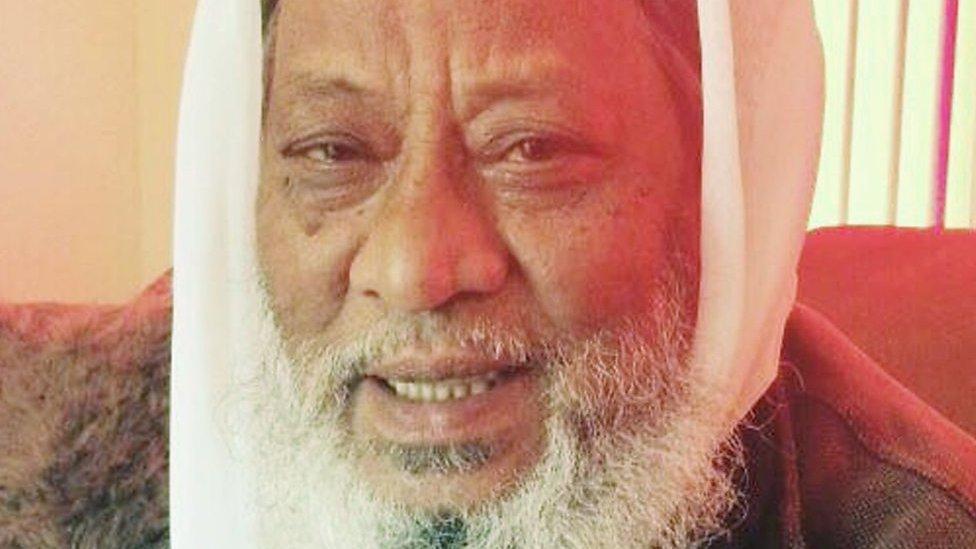Jalal Uddin killing: Public inquiry to examine imam's murder
- Published
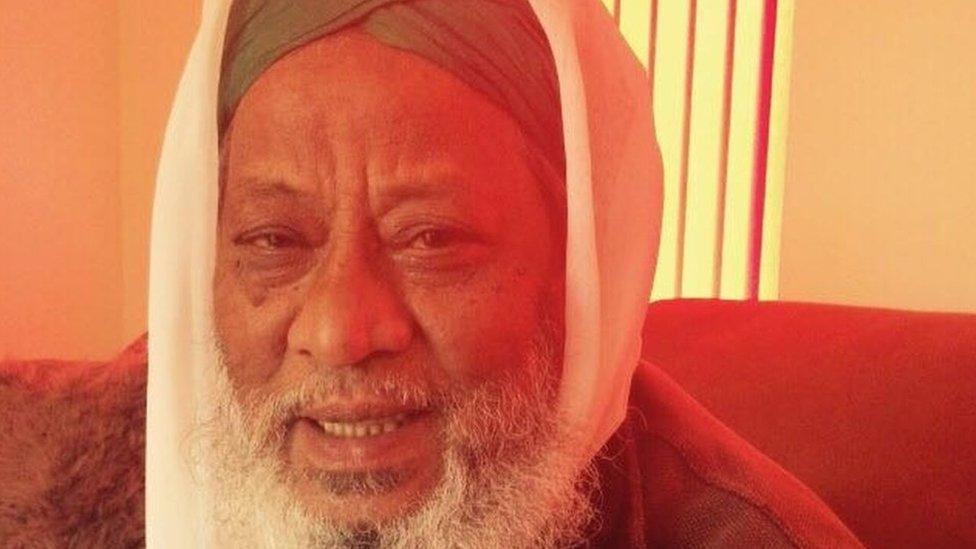
Jalal Uddin was found with a serious head injury and later died in hospital
A public inquiry is to examine whether intelligence failures contributed to the death of a murdered imam.
Jalal Uddin, 71, was bludgeoned with a hammer in a play area in Rochdale, Greater Manchester, in February 2016.
Mohammed Kadir, then 24, is believed to have struck the fatal blows and planned the killing with Mohammed Syeedy, then 21, who drove Kadir to the scene.
The chief coroner of England and Wales, Judge Thomas Teague KC, opened the first hearing of the inquiry earlier.
Mr Uddin, who was of Bangladeshi heritage and had lived in the UK for 15 years before his death, was formerly an imam at the Jalalia Mosque in Rochdale and regarded as a scholar of the Koran.
Kadir fled the UK three days after the killing and is thought to have headed to Syria, while Syeedy, who was a Manchester United steward, was convicted of murdering Mr Uddin in September 2016 and sentenced to life with a minimum term of 24 years
Syeedy's trial was told both men were sympathisers of the terrorist group calling itself Islamic State and consumed by hatred of Mr Uddin for his practise of Ruqyah, a form of exorcism, which the terror organisation considered "black magic".
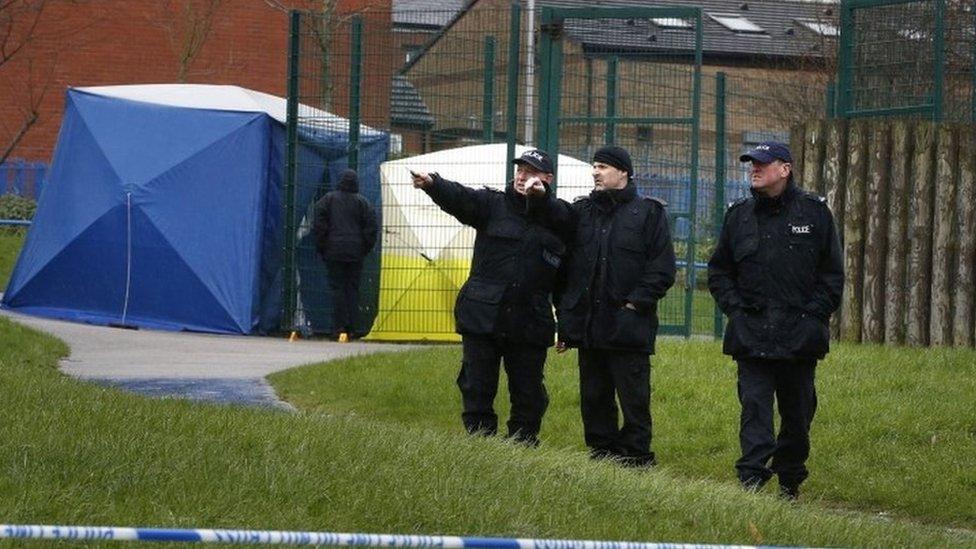
Mr Uddin was attacked in a play area in Rochdale
Judge Teague said: "If similar tragedies are to be avoided in future, there has to be a thorough and fearless investigation into the circumstances in which Mr Uddin came by his death.
"It has become clear in this case that for sound legal reasons an inquest would not be able to consider certain material that is highly relevant to the scope of the investigation, any more in fact than the criminal proceedings were able to do so."
He said "some importance evidence" cannot be heard in open court and closed sessions will have to be held.
Judge Teague said the question of how and in what circumstances Mr Uddin died will "occupy the bulk of the inquiry's time and effort".
He added: "In particular, the inquiry will need to establish whether any failure took place in the gathering, handling or assessment of intelligence that might have contributed to the tragic outcome of this case."
A third man, Mohammed Syadul Hussain, was convicted in April 2017 of helping Kadir leave the country and jailed for five years.
A previous pre-inquest hearing was told police were made aware in August 2015 of a number of extremist posts on Facebook by a "Mohammed Kadz", later identified as Kadir.
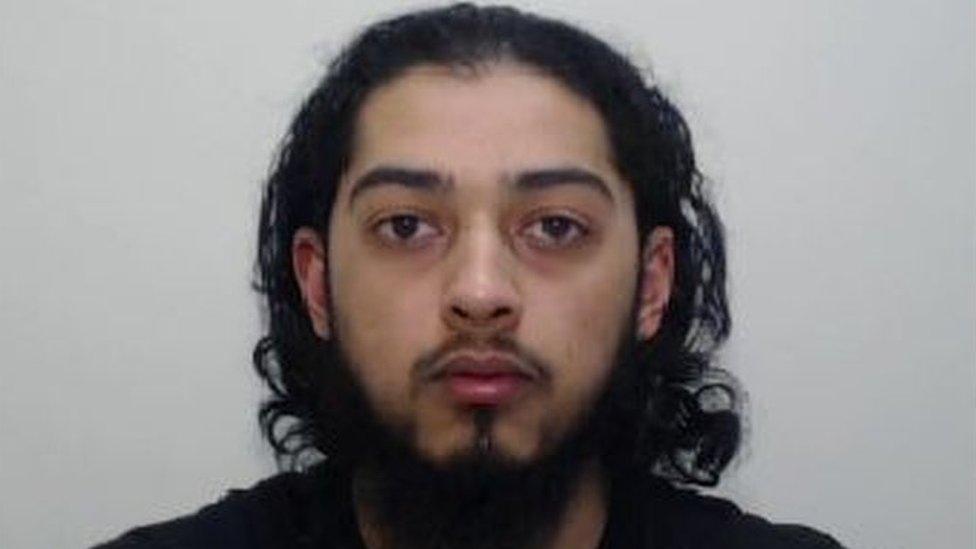
Mohammed Hussain Syeedy targeted the imam because of his spiritual healing practices
From October 2015, Kadir was assessed and continued to be assessed as a person of high risk and significant concern, and latterly as someone who posed a risk of acting on his Islamist extremist aspirations.
On 7 December, 2015, a request was made for the appointment of a senior investigating officer in respect of Kadir but there was "some uncertainty" as to who had primary responsibility thereafter.
In January 2016, intelligence suggested Kadir had access to openly available extremist literature, including bomb-making manuals and other material providing instructions on how to wage violent jihad.
The open hearings will take place in the week commencing 23 September next year at a venue to be fixed.

Why not follow BBC North West on Facebook, external, Twitter, external and Instagram, external? You can also send story ideas to northwest.newsonline@bbc.co.uk
Related topics
- Published16 September 2016
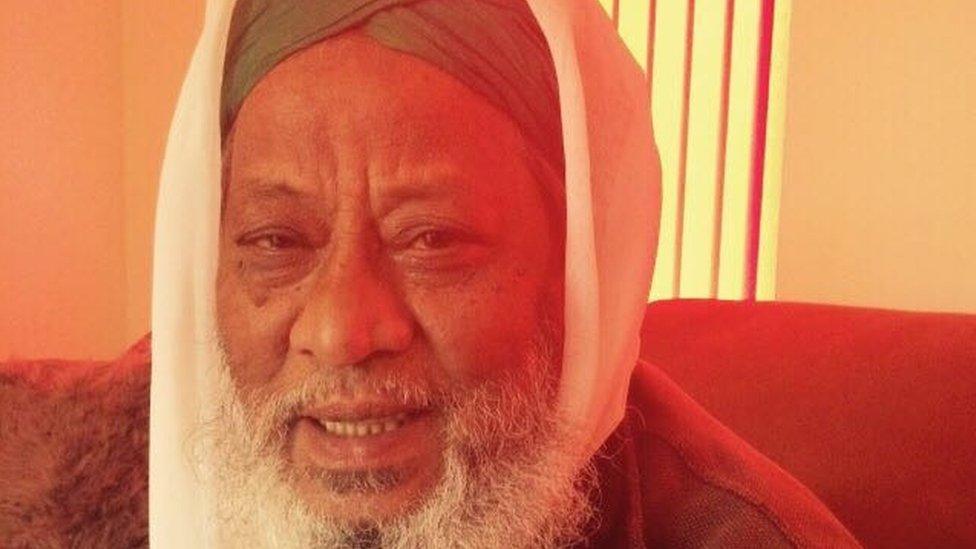
- Published16 September 2016
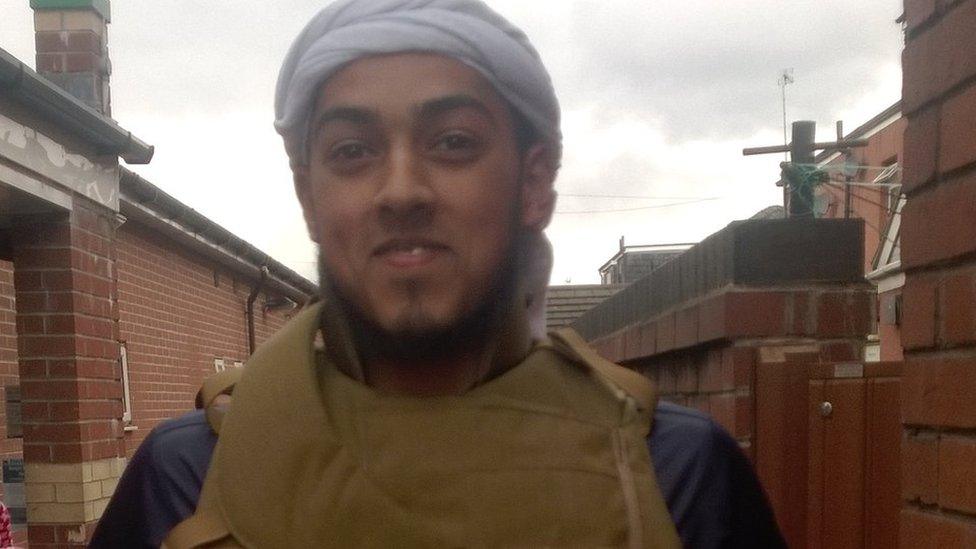
- Published16 September 2016
- Published16 September 2016
